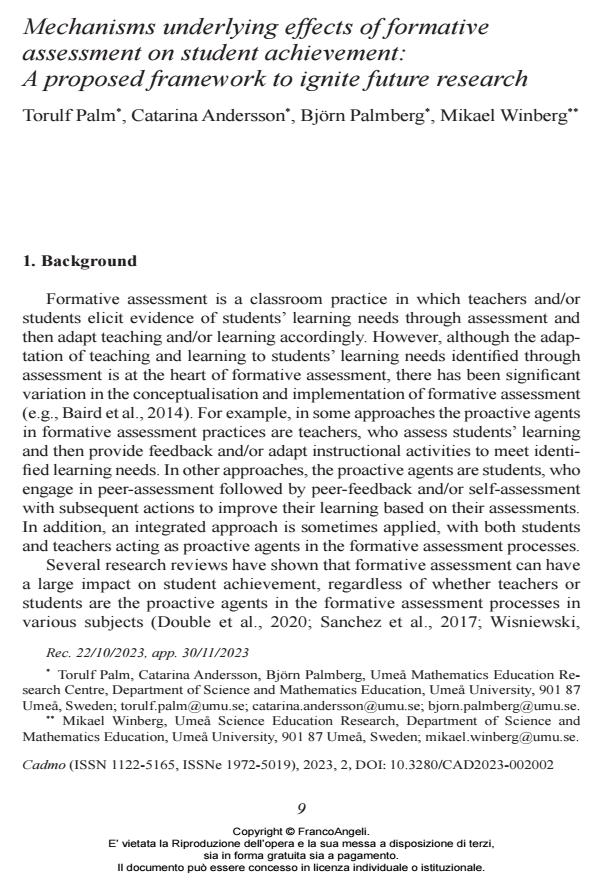Mechanisms underlying effects of formative assessment on student achievement: A proposed framework to ignite future research
Journal title CADMO
Author/s Torulf Palm, Catarina Andersson, Björn Palmberg, Mikael Winberg
Publishing Year 2024 Issue 2023/2
Language English Pages 12 P. 9-20 File size 202 KB
DOI 10.3280/CAD2023-002002
DOI is like a bar code for intellectual property: to have more infomation
click here
Below, you can see the article first page
If you want to buy this article in PDF format, you can do it, following the instructions to buy download credits

FrancoAngeli is member of Publishers International Linking Association, Inc (PILA), a not-for-profit association which run the CrossRef service enabling links to and from online scholarly content.
Research has shown that formative assessment can have large positive effects on student achievement, but the effects vary substantially and are not always positive. In addition, the underlying mechanisms responsible for the learning effects are not well understood. We present a framework developed to support research efforts to identify these mechanisms. The framework includes formative assessment processes as well as students’ learning processes, defines and exemplifies the term mechanisms in relevant contexts, indicates possible mechanisms, and identifies aspects that require further research to characterise and explain the mechanisms through which formative assessment affects student achievement. Finally, we exemplify how the framework may be used to design studies capable of providing the robust evidence required for drawing conclusions about the mechanisms.
Keywords: Formative assessment, Assessment for learning, Framework, Mechanisms, Mathematics.
- A multi-approach formative assessment practice and its potential for enhancing student motivation: a case study Björn Palmberg, Carina Granberg, Catarina Andersson, Torulf Palm, in Cogent Education 2371169/2024
DOI: 10.1080/2331186X.2024.2371169
Torulf Palm, Catarina Andersson, Björn Palmberg, Mikael Winberg, Mechanisms underlying effects of formative assessment on student achievement: A proposed framework to ignite future research in "CADMO" 2/2023, pp 9-20, DOI: 10.3280/CAD2023-002002